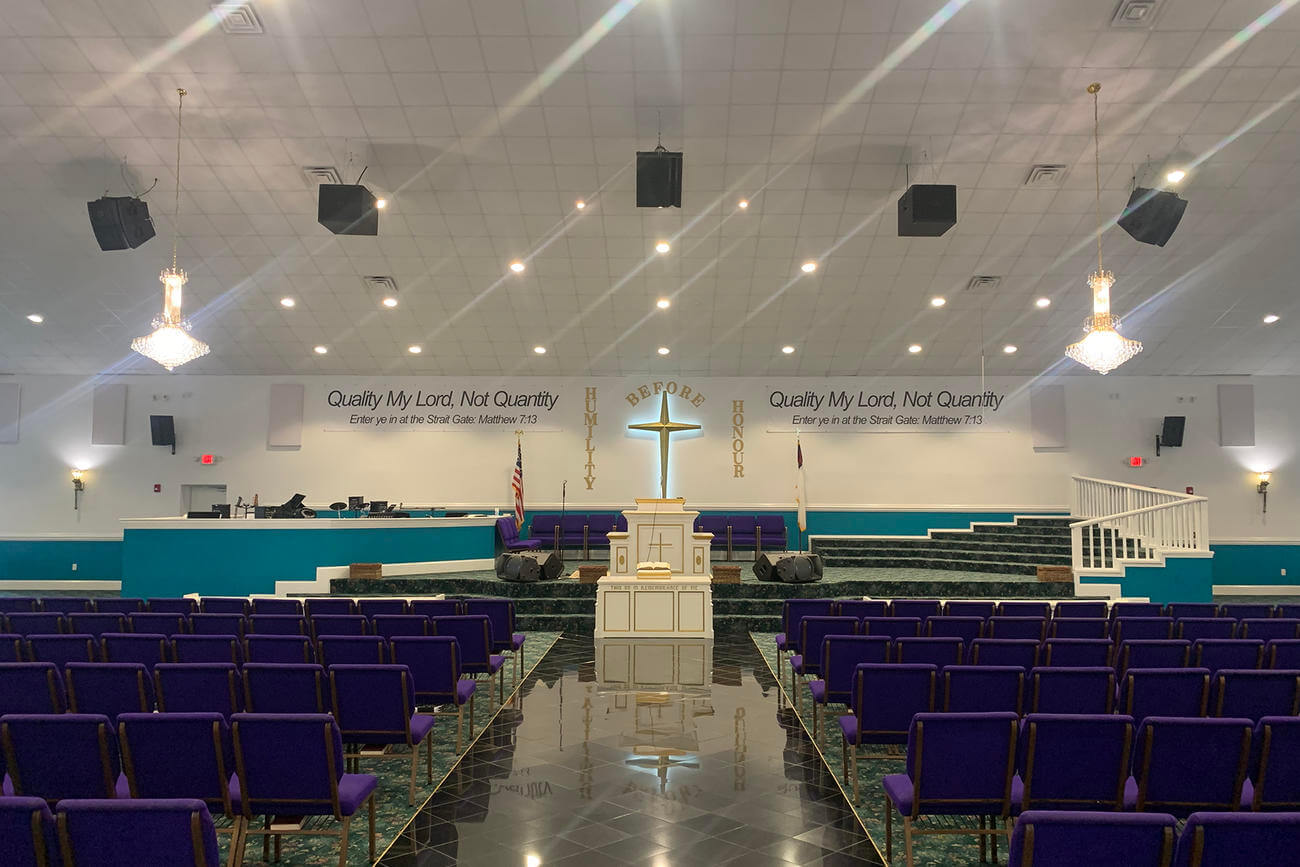

A church former members have described as a cult has lost its GI Bill eligibility after two decades of allegedly bilking Bible school students out of millions of dollars of veterans benefits.
On Monday, officials from state regulatory agencies in Georgia, North Carolina and Texas disclosed that schools connected to the House of Prayer church had been stripped of their eligibility for GI Bill money. The loss of access to GI Bill funds had not been previously reported.
House of Prayer had collected $7 million in veterans’ tuition money over 18 years. In addition, several veterans told Military.com that they were expected to donate their housing allowances to the church.
Read Next: Troops, Veterans Can Get More Life Insurance Coverage Under Bill on Biden’s Desk
In Hinesville, Georgia, where the church is headquartered, beneficiaries earned $1,500 per month, according to 2022 Department of Veterans Affairs data. The church’s other locations include Augusta, Georgia; Tacoma, Washington; Killeen, Texas; and Fayetteville, North Carolina.
A spokesperson for the church did not respond to a request for comment ahead of this story’s publication.
A Military.com investigation detailed how a complex string of businesses connected to the church’s leadership had been relying on veterans and their benefits for nearly 20 years, pushing service members and veterans to turn over their military paychecks and disability pay, and use their home loan and GI Bill benefits to create revenue for the church.
Those who disagreed with church leadership often had to leave their families behind and relinquish contact, according to several former church members, some of whom called the organization “a cult.”
Texas’ decision to revoke authorization for the House of Prayer schools came July 21, days after the Military.com investigation was published; North Carolina and Georgia had suspended the schools the month before.
In June, the House of Prayer’s five churches were raided by the FBI. Authorities seized computers, church records and cash. All of those facilities are located near major Army installations. No charges have been filed.
The church’s Bible schools, which received the GI Bill money, offered no degrees, with veterans expected to attend until their benefits ran out, according to former students and a former school administrator.
The courses were virtually identical to any typical Sunday school, Arlen Bradeen, who ran the bible schools from 2004 to 2019, told Military.com in a July interview. The classes would often be renamed to subvert GI Bill regulations preventing students from taking redundant classes on the taxpayer’s dime, he said. In some cases, church rooms would be rearranged to look like formal classrooms ahead of inspections from the VA, he added.
The GI Bill eligibility decisions came from State Approving Agencies, or SAAs, which serve as the VA’s enforcement arm for GI Bill rules. It’s a relatively low-profile, state-level bureaucracy, but it oversees what is widely considered one of the federal government’s most cherished public programs. Roughly 1 million beneficiaries use the GI Bill, a key recruiting tool for the military, each year, serving as a direct path for service members to reach the middle class.
SAA operations vary from state to state, and the SAAs in Georgia, North Carolina and Texas independently cut off the House of Prayer at different times.
While the agencies have faced criticism in the past for not being more critical of some for-profit schools, some have become more proactive. The District of Columbia’s regulatory arm temporarily stripped Howard University of its GI Bill eligibility over paperwork snafus by a school staffer who left the job after Military.com’s reporting on the incident.
Veterans Education Success, a Washington, D.C.-based advocacy group that lobbies on military education issues, told Congress that the House of Prayer’s alleged scam against veterans serves as a flashpoint for the need for boosted oversight over the GI Bill and which schools can become approved institutions.
Military.com visited the House of Prayer church in North Carolina, located just outside of Fort Bragg, in August. The church appeared to be abandoned and unkept, with a man sleeping on one of the steps. A store owner in the area said no one had been in the building since the FBI raid. In July, a reporter from this publication was also granted a tour of the Hinesville headquarters, which appeared fully operational. Congregants declined to answer questions or issue comments on the record, but pointed to signs of damage to doors they claimed was caused by federal agents during the raid.
The church may also be operating under other aliases, including The Place of Help and On Fire Missions, according to the church’s website and former members.
— Steve Beynon can be reached at [email protected]. Follow him on Twitter @StevenBeynon.
Related: How a Church Allegedly Scammed Millions in VA Money from Vets
© Copyright 2022 Military.com. All rights reserved. This material may not be published, broadcast, rewritten or redistributed.
